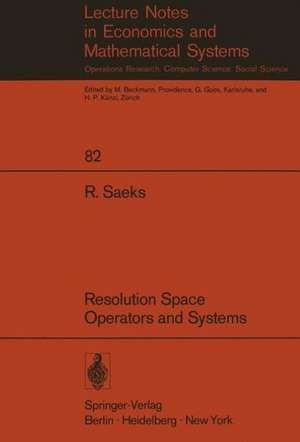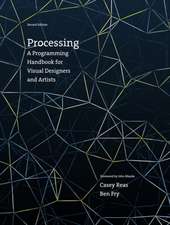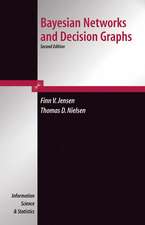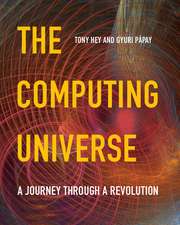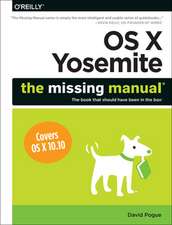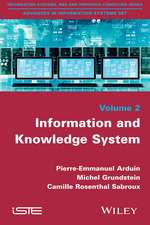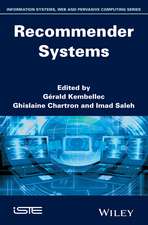Resolution Space, Operators and Systems: Lecture Notes in Economics and Mathematical Systems, cartea 82
Autor R. Saeksen Limba Engleză Paperback – 5 feb 1973
Din seria Lecture Notes in Economics and Mathematical Systems
-
 Preț: 360.02 lei
Preț: 360.02 lei -
 Preț: 383.93 lei
Preț: 383.93 lei - 15%
 Preț: 693.39 lei
Preț: 693.39 lei -
 Preț: 384.09 lei
Preț: 384.09 lei -
 Preț: 380.07 lei
Preț: 380.07 lei -
 Preț: 446.26 lei
Preț: 446.26 lei -
 Preț: 497.37 lei
Preț: 497.37 lei -
 Preț: 380.84 lei
Preț: 380.84 lei -
 Preț: 384.86 lei
Preț: 384.86 lei -
 Preț: 378.34 lei
Preț: 378.34 lei -
 Preț: 399.67 lei
Preț: 399.67 lei - 20%
 Preț: 360.93 lei
Preț: 360.93 lei - 15%
 Preț: 643.16 lei
Preț: 643.16 lei -
 Preț: 379.09 lei
Preț: 379.09 lei -
 Preț: 404.76 lei
Preț: 404.76 lei -
 Preț: 385.62 lei
Preț: 385.62 lei - 15%
 Preț: 644.49 lei
Preț: 644.49 lei -
 Preț: 379.09 lei
Preț: 379.09 lei -
 Preț: 345.50 lei
Preț: 345.50 lei -
 Preț: 425.80 lei
Preț: 425.80 lei -
 Preț: 378.34 lei
Preț: 378.34 lei - 18%
 Preț: 775.65 lei
Preț: 775.65 lei -
 Preț: 392.60 lei
Preț: 392.60 lei -
 Preț: 401.61 lei
Preț: 401.61 lei - 15%
 Preț: 646.43 lei
Preț: 646.43 lei -
 Preț: 382.18 lei
Preț: 382.18 lei -
 Preț: 378.34 lei
Preț: 378.34 lei - 15%
 Preț: 637.59 lei
Preț: 637.59 lei - 15%
 Preț: 647.27 lei
Preț: 647.27 lei -
 Preț: 377.73 lei
Preț: 377.73 lei -
 Preț: 447.84 lei
Preț: 447.84 lei - 15%
 Preț: 644.49 lei
Preț: 644.49 lei -
 Preț: 386.00 lei
Preț: 386.00 lei - 15%
 Preț: 654.43 lei
Preț: 654.43 lei -
 Preț: 415.02 lei
Preț: 415.02 lei -
 Preț: 411.54 lei
Preț: 411.54 lei -
 Preț: 398.92 lei
Preț: 398.92 lei -
 Preț: 398.92 lei
Preț: 398.92 lei -
 Preț: 392.75 lei
Preț: 392.75 lei - 15%
 Preț: 635.47 lei
Preț: 635.47 lei - 20%
 Preț: 653.56 lei
Preț: 653.56 lei -
 Preț: 379.86 lei
Preț: 379.86 lei -
 Preț: 495.46 lei
Preț: 495.46 lei -
 Preț: 447.99 lei
Preț: 447.99 lei -
 Preț: 378.71 lei
Preț: 378.71 lei - 15%
 Preț: 637.13 lei
Preț: 637.13 lei -
 Preț: 385.84 lei
Preț: 385.84 lei -
 Preț: 378.54 lei
Preț: 378.54 lei - 15%
 Preț: 666.55 lei
Preț: 666.55 lei
Preț: 648.26 lei
Preț vechi: 810.33 lei
-20% Nou
Puncte Express: 972
Preț estimativ în valută:
124.06€ • 134.71$ • 104.21£
124.06€ • 134.71$ • 104.21£
Carte tipărită la comandă
Livrare economică 22 aprilie-06 mai
Preluare comenzi: 021 569.72.76
Specificații
ISBN-13: 9783540061557
ISBN-10: 354006155X
Pagini: 284
Ilustrații: X, 270 p.
Dimensiuni: 178 x 254 x 15 mm
Greutate: 0.49 kg
Ediția:Softcover reprint of the original 1st ed. 1973
Editura: Springer Berlin, Heidelberg
Colecția Springer
Seria Lecture Notes in Economics and Mathematical Systems
Locul publicării:Berlin, Heidelberg, Germany
ISBN-10: 354006155X
Pagini: 284
Ilustrații: X, 270 p.
Dimensiuni: 178 x 254 x 15 mm
Greutate: 0.49 kg
Ediția:Softcover reprint of the original 1st ed. 1973
Editura: Springer Berlin, Heidelberg
Colecția Springer
Seria Lecture Notes in Economics and Mathematical Systems
Locul publicării:Berlin, Heidelberg, Germany
Public țintă
ResearchCuprins
1. Causality.- A. Resolution Space.- B. Causal Operators.- C. Closure Theorems.- D. The Integrals of Triangular Truncation.- E. Strictly Causal Operators.- F. Operator Decomposition.- G. Problems and Discussion.- 2. Feedback Systems.- A. Well-Posedness.- B. Stability.- C. Sensitivity.- D. Optimal Controllers.- E. Problems and Discussion.- 3. Dynamical Systems.- A. State Decomposition.- B. Controllability, Observability and Stability.- C. The Regulator Problem.- D. Problems and Discussion.- 4. Time-Invariance.- A. Uniform Resolution Space.- B. Spaces of Time-Invariant Operators.- C. The Fourier Transform.- D. The Laplace Transform.- E. Problems and Discussion.- Appendices.- A. Topological Groups.- A. Elementary Group Concepts.- B. Character Groups.- C. Ordered Groups.- D. Integration on (LCA) Groups.- E. Differentiation on (LCA) Groups.- B. Operator Valued Integration.- A. Operator Valued Measures.- B. The Lebesgue Integral.- C. The Cauchy Integrals.- D. Integration over Spectral Measures.- C. Spectral Theory.- A. Spectral Theory for Unitary Groups.- B. Spectral Multiplicity Theory.- C. Spectral Theory for Contractive Semigroups.- D. Representation Theory.- A. Resolution Space Representation Theory.- B. Uniform Resolution Space Representation Theory.- References.
